The Weeknd’s Death: Analysis of ‘Hurry Up Tomorrow,’ His Latest Album
Following After Hours and Dawn FM, the Canadian star releases the album that completes the trilogy and closes the most significant chapter of his career

MELBOURNE, AUSTRALIA - OCTOBER 05: The Weeknd performs at Marvel Stadium on October 05, 2024 in Melbourne, Australia. (Photo by Naomi Rahim/Getty Images for Live Nation)
«All I have is my legacy. I’ve been losing my memory.» With this verse, The Weeknd opens his new project. The Canadian singer had already hinted that this would be the best and most personal collection of his career. The title, Hurry Up Tomorrow, foreshadows the new phase that will follow its release. It’s a psychological thriller with a musical approach that encapsulates the evolution and healing of an Abel shattered by the betrayal of love.
In 2024, the artist had already gifted us with a couple of pieces that define the conceptual and artistic vision of the album. Timeless and São Paulo provided a lighter and more liberating perspective of the artist’s mind. The music video for Dancing In The Flames, a track that ultimately didn’t make the album, teased many of the key elements now present in this final chapter. While it may seem to revolve around a love story, the core narrative is about mental health and self-care amidst adversity and excess.
Hurry Up Tomorrow: A Journey of Betrayal, Addiction, and Redemption
Hurry Up Tomorrow consists of 22 tracks that explore themes of betrayal, heartbreak, addiction, mistakes, but above all, regret and redemption. It’s a deeply personal story meticulously connected through production choices. In fact, many visual and compositional details reference past projects, serving as a response to his artistic growth. This album feels like The Weeknd closing a cycle and saying farewell to music in a literary fashion, reminiscent of Roland Barthes’ The Death of the Author.
Context: How Hurry Up Tomorrow Fits Into The Weeknd’s Career
Before diving into this album, it’s essential to take a step back and understand that this project is part of a larger process. The Weeknd rose to fame in 2015 with Beauty Behind the Madness, an album characterized by its dark themes and sound palette. Songs like The Hills and Acquainted touch on drug use and the struggles of his youth—a narrative that was also prominent in Trilogy, his first three projects.
With his rising fame, the Canadian artist shocked fans with Starboy, a completely different collection. This album flaunted his success, earning him multiple #1 hits in the U.S. and worldwide. His music took a turn away from somber and depressive tones, opting for a more enjoyable sound. However, his emotional state declined again with his next project.
His breakup with Selena Gomez deeply affected him, leading to intense sadness. The Weeknd channeled his melancholy into songs like Call Out My Name, which speaks of the sacrifices he made for her. «I almost cut a piece of myself for your love,» he sings, alluding to nearly donating a kidney to save her life. This heartbreak marked the beginning of a trilogy that chronicled his healing process.
After Hours (Hell) – The first chapter of this journey dives into the singer’s darkest emotions, revisiting themes of excess, addiction, and depression. The track Faith, which closes the album, offers a glimmer of hope, setting up the second chapter.
Dawn FM (Purgatory) – Framed as a radio show, this album marks the start of his reflection and healing, as he journeys toward the light at the end of the tunnel.
Hurry Up Tomorrow (Paradise) – The final installment, representing liberation and closure.
The End of the Mourning Period
Hurry Up Tomorrow represents an escape from darkness—a song of freedom. It begins with Wake Me Up, a conversation with God in which the artist questions whether He is real or just a collective illusion. From a skeptical perspective, he asks for his sins to be washed away. Musically, this opening track contains elements reminiscent of the previous two albums. It sets the tone for the record with a clear intention: to shed the demons of the past (After Hours) and move forward.
The themes explored in the following songs come from a place of regret. The Weeknd is brutally honest with himself; though he acknowledges that some mistakes cannot be undone, he demonstrates growth from his last relationship.
In After Hours, self-loathing dominates the tracklist. In Dawn FM, Abel becomes more reflective, carrying the weight of his guilt. In Hurry Up Tomorrow, he embraces positivity, symbolized by his powerful vocal delivery. This transformation is also reflected in the album covers:
- The After Hours cover, with blood, represents emotional pain.
- The Dawn FM cover, with wrinkles, signifies the burdens he has processed and seeks to release.
- The Hurry Up Tomorrow cover features a close-up of The Weeknd with tears in his eyes, revealing his most human side.
References to Past Works
The album is filled with nods to his previous projects:
In Cry For Me, he reveals how vulnerable he felt in his relationship with Selena Gomez, wishing she would cry for him as he did for her in Save Your Tears.
In Baptized In Fear, he revisits the theme of escaping death, as seen in Tell Your Friends, False Alarm, and Take My Breath. He also references the advice given by Jim Carrey in Phantom Regret by Jim.
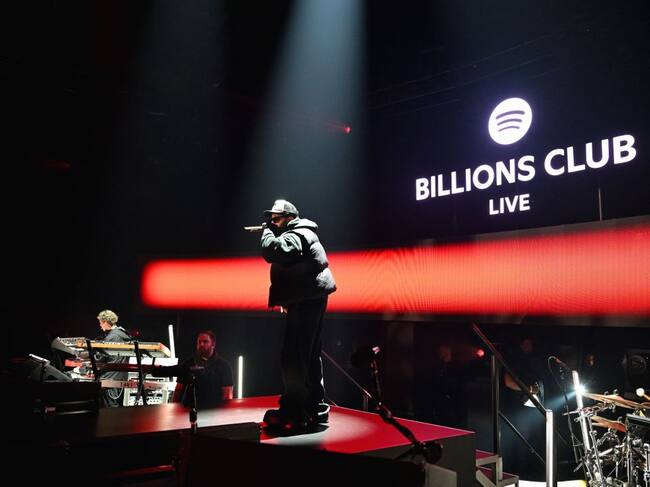
The Weeknd performs onstage at Spotify’s Billions Club Live with The Weeknd at The Barker Hangar on December 17, 2024 in Los Angeles, California. Denise Truscello/Getty Images for Spotify / Denise Truscello
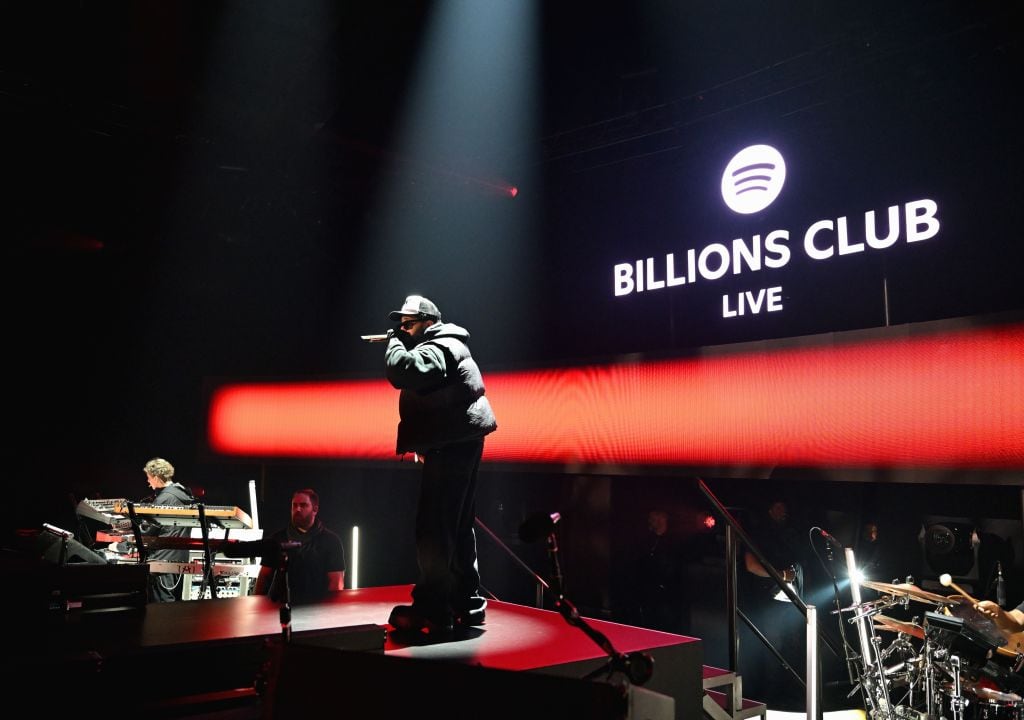
The Weeknd performs onstage at Spotify’s Billions Club Live with The Weeknd at The Barker Hangar on December 17, 2024 in Los Angeles, California. Denise Truscello/Getty Images for Spotify / Denise Truscello
Take Me Back to LA directly references Escape From LA—the place that once led him into a cycle of delusions and self-hatred has now become his home again. Nostalgia and longing for his roots are palpable: «I want my soul back,» he sings, alluding to losing himself during the Starboy era.
The lead single, Open Hearts, ventures into a rarely explored area of his music. The «fallen angel» he refers to is the «angel in disguise» from Call Out My Name—a reference to Selena Gomez.
Additionally, there are subtle jabs at Drake: In Enjoy The Show, he raps: «Like a middle-aged child star, that’s how I’m acting,» a dig at how Drake, who started young, continues behaving the same way. I Can’t Wait To Get There contains more subliminal shots at the rapper.
Collages and Collaborations
Musically, The Weeknd draws inspiration from the styles of his idols. Clear influences from Michael Jackson and Prince are present, blended with cutting-edge production. The album includes a sample of Wild Is The Wind by Johnny Mathis in Given Up On Me and features collages—fusions of two contrasting genres within the same track. Examples include Big Sleep and Niagara Falls.
Another surprise is the star-studded lineup of collaborators, which he kept entirely under wraps. While Playboi Carti and Anitta were already confirmed, the album also features Future, Travis Scott, and Lana Del Rey.

‘The Weeknd’ Tesfaye performs on stage during the ‘After Hours Til Dawn Tour’ at MorumBIS on September 7, 2024 in Sao Paulo, Brazil. Wagner Meier/Getty Images for Live Nation
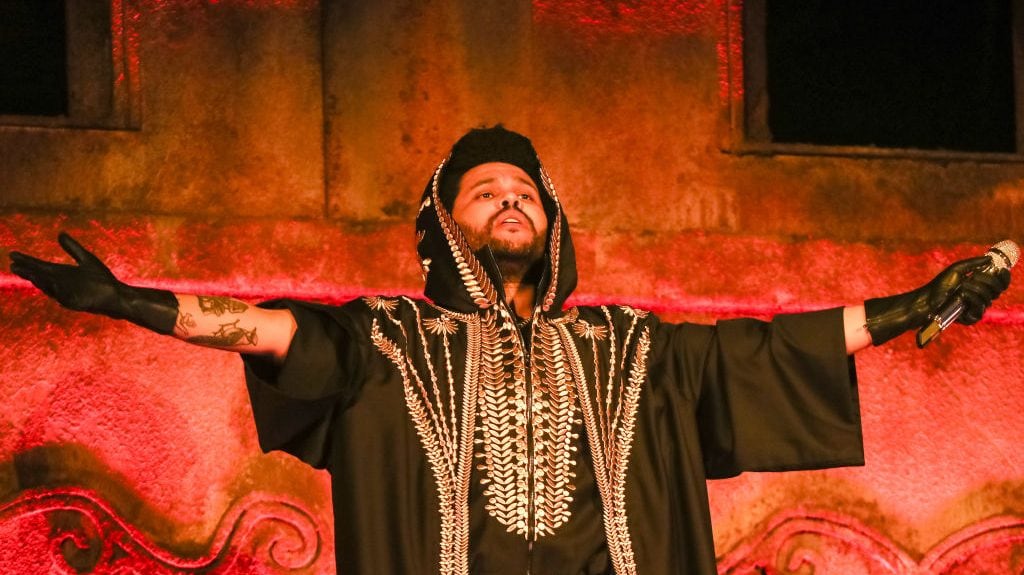
‘The Weeknd’ Tesfaye performs on stage during the ‘After Hours Til Dawn Tour’ at MorumBIS on September 7, 2024 in Sao Paulo, Brazil. Wagner Meier/Getty Images for Live Nation
The Death of The Weeknd
Ultimately, Hurry Up Tomorrow concludes with its title track. The album’s final notes mirror those in High For This, the very first song of his career. With this, The Weeknd marks the end of an era—a journey that closes the chapter on his career as The Weeknd.
But don’t worry—he isn’t retiring from music. Instead, the Canadian artist is entering a new phase under his real name, Abel Tesfaye. This album marks the beginning of a more honest and personal version of himself, promising to be more true to who he is than ever before.
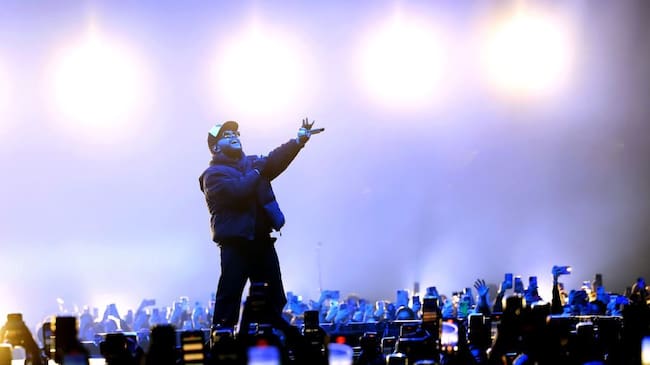
The Weeknd performs onstage at Spotify’s Billions Club Live with The Weeknd at The Barker Hangar on December 17, 2024 in Los Angeles, California. Kevin Mazur/Getty Images for Spotify
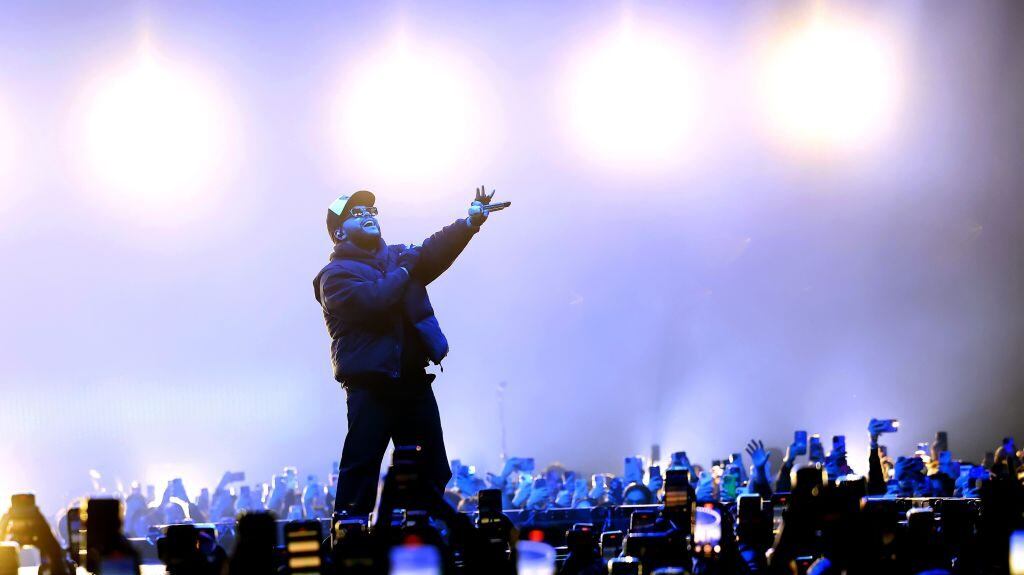
The Weeknd performs onstage at Spotify’s Billions Club Live with The Weeknd at The Barker Hangar on December 17, 2024 in Los Angeles, California. Kevin Mazur/Getty Images for Spotify
Ana Rojas
Periodista en LOS40, coordinando LOS40 USA y colaborando también en El País. Cubro temas de música,...
